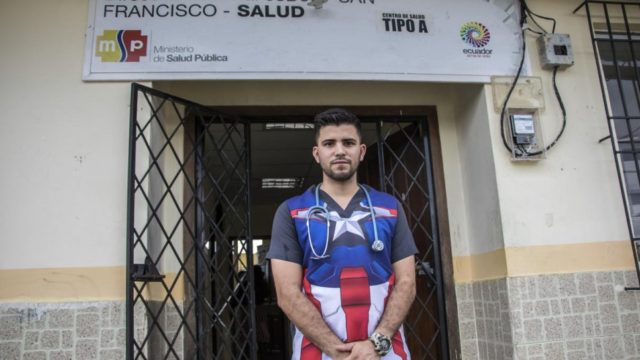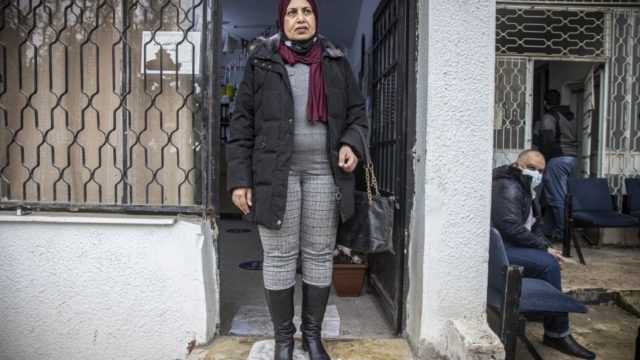
Aisha Al-Hunity, 75, a Syrian refugee from Zaatari Camp, receives her COVID-19 vaccine at the Department of Chest Infection Health Clinic in Mafraq, Jordan. ©UNHCR/ Shawkat Alharfosh
UNHCR’s ongoing response to the once-in-a-century health crisis.
Jordan achieved a major milestone in the fight against COVID-19 becoming one of the world’s first countries to start COVID-19 vaccinations for refugees. UNHCR is hopeful other nations will follow their example.
As Canada and countries around the world roll out COVID-19 immunization programs, UNHCR is squarely focused on ensuring forcibly displaced people are included in national vaccination efforts. UNHCR has been advocating for equal inclusion of refugees, internally displaced and stateless people in national vaccination plans through the COVAX Facility, a global initiative that brings together governments and manufacturers to ensure that COVID-19 vaccines eventually reach those in greatest need.
“The vast majority of the world’s refugees are hosted in low and middle income countries,” says UN High Commissioner for Refugees Filippo Grandi. “Global and equitable access is what will ultimately protect lives and stem the pandemic.”
While the responsibility of procuring vaccinations lies with governments, UNHCR continues to support refugee host countries with critical health, sanitation, hygiene and logistical support, as well as personal protective equipment.
UNHCR will also support with trained staff and facilities for vaccine administration, and communication with communities to promote health messaging.
Eighty-five per cent of refugees per cent of refugees are hosted in low and middle income countries, where health systems are already overwhelmed and under-capacitated, and another wave of the pandemic is underway across many parts of the world.





